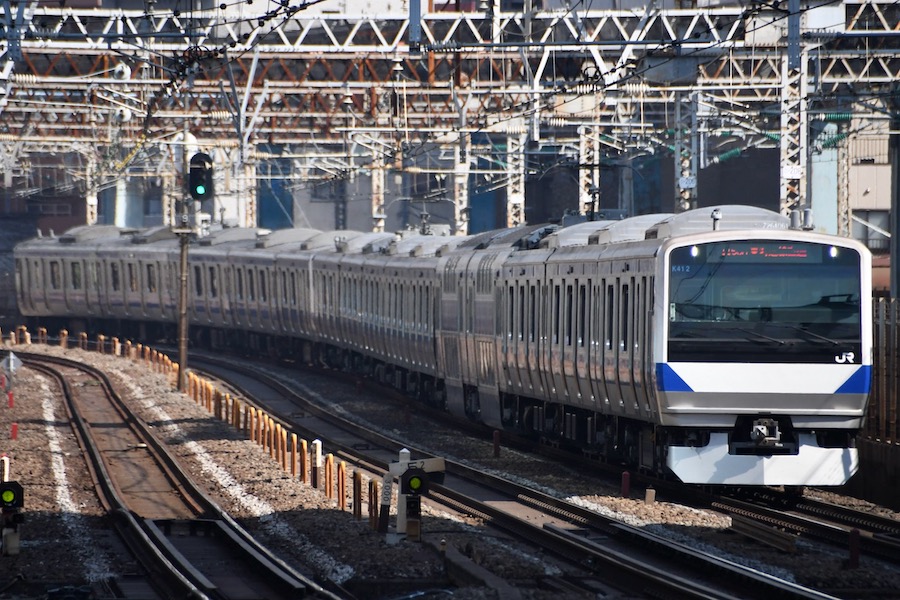
JR East to Revise Fares in March 2026 with a 7.8% Increase, Application Approved
In Japan, it’s possible to buy a drink from a vending machine anytime, anywhere. However, in Europe, including the UK, there has been a continuous situation where vending machines are often vandalized, or products and cash are stolen, leaving few machines actually usable.
Despite such circumstances, JR East has recently acquired a vending machine operator company in the UK. What’s the story behind this acquisition? We visited the company’s London office to find out.
JR East has been rolling out its comprehensive beverage brand, acure, primarily within station vending machines. You might have seen vending machines marked with the acure logo within JR East’s stations. In London, since 2019, JR East prepared 50 digital vending machines in the same color scheme as the acure brand and installed them at railway stations and car parks throughout the UK to assess demand and operational methods. Confirming the “potential of the business,” in June this year, they established a local subsidiary, JRE Business Development UK, within their London office.
The 50 vending machines prepared by JR East in the UK have an appearance that could be considered exceptional by European standards. The entire front panel is a digital screen that not only allows the selection of products through touch but also displays the current weather and traffic information, incorporating the best of Japanese vending machine technology. However, honestly speaking, with just over 50 machines, it’s still in the “pilot experiment” phase.
Amidst this, news came that “through the newly established local subsidiary of JR East, we have acquired a company called Decorum Vending, which installs and operates vending machines at major local stations.” This acquisition greatly expands JR East’s vending machine business in the UK from 50 to 1,000 machines.
We spoke to Mr. Susumu Nagakawa, the Director of JR East’s London office and concurrently the representative of the newly established local subsidiary.
Mr. Nagakawa explained that vending machines in the UK were seen as the “last resort” when all shops were closed. To people, vending machines were just “unusable machines” that were only utilized when there was no other option for purchasing. Furthermore, to the chat-loving British, the act of purchasing products from a machine was not thrilling, contributing to the limited expansion of the vending machine business.
So, why did JR East decide to venture into the vending machine business? Mr. Nagakawa analyzed that the habit of chatting with shop clerks, which became less common due to the COVID-19 pandemic, has lowered the barrier to purchasing from machines. “There are still many ways to do it,” he says, expressing his optimism for exploring new business areas with promotions such as discounts on vending machine purchases.
Since August, JR East has been selling acure’s original juices for about 3.20 pounds (approximately ¥600) each in a vending machine located inside a UNIQLO store in central London. Not only juices but also Japanese railway-related goods are available from the machine.
While the prices may seem high to Japanese eyes, comparable products in fast-food restaurants in London are sold for over 4 pounds (over ¥800), making them fairly priced in the market. This strategy may reveal the potential for selling “high-value Japanese products in London.”
According to Mr. Nagakawa, Fukushima’s “Akatsuki Peach Juice” is the most popular among the juices, with successful sales even in storefront tests. Aomori Apple Juice is also performing well, indicating that “other products are selling steadily.”
Mr. Nagakawa pointed out the potential for vending machine adaptations in the UK, suggesting, “Instead of just bringing the Japanese way of selling, it would be interesting to sell meal deals through machines.” A meal deal typically includes a sandwich as the “main” item, with fruit or a snack and a drink included, all discounted when purchased together. This type of promotion, resulting in a discount during purchase, is rarely seen in vending machines in Japan.
“There are no vending machines selling warm beverages in the UK. Maybe we could sell corn soup or onion soup in the winter,” says Mr. Nagakawa.
With a variety of vending machines already saturating the market in Japan, the UK’s vending machine industry might have more room for creative development and growth.
Let’s hope the Japanese approach to making stations more interesting with vending machines spreads quickly across the UK.